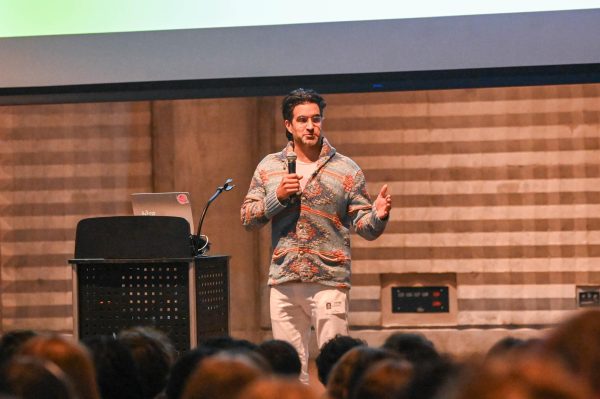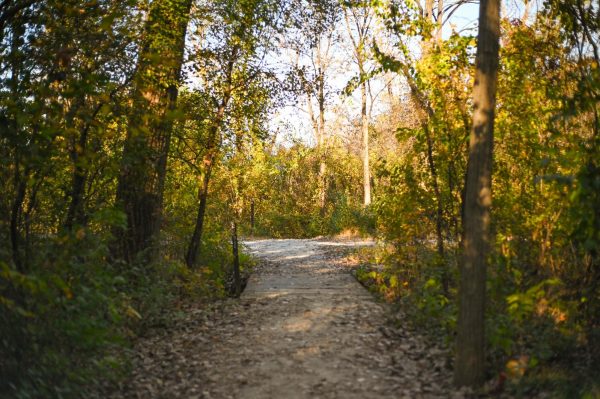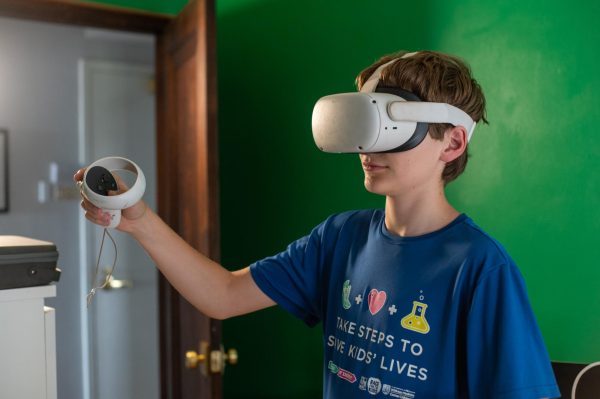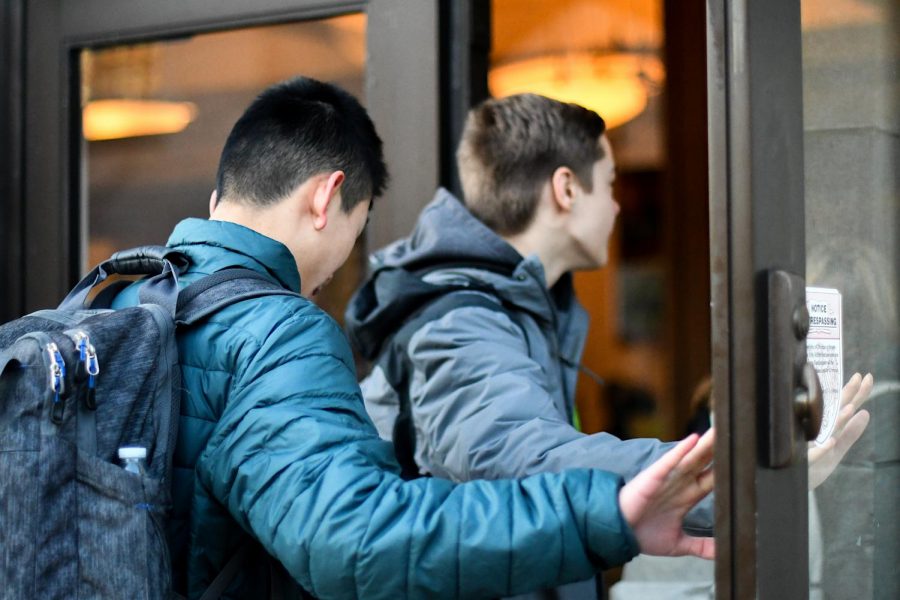Parents advocate for later start time
Maria Shaughnessy
EARLY RISERS. Students walk into school 7:50 a.m., ten minutes before class. Many struggle with lack of sleep due to a heavy workload and packed schedule. For some, an 8 a.m. start plus a commute means waking up before sunrise each day.
With public schools in Seattle and the state of California leading the charge in passing later school start time legislation and research only pointing in favor, a growing group of Lab parents have advocated for U-High to follow suit.
The group is spurred by Lab’s wellness survey results showing that high school students reported sleeping approximately 7 hours on school nights, as opposed to the 8-10 hours recommended by the American Academy of Pediatrics. Nearly 20% of U-High students reported getting less than 6 hours of sleep per night.
Whether illustrated in individual case studies or on large-scale platforms, most signs seem to point to later start times as optimal.
While the west coast may be leading the charge in legislation, a group at U-High has advocated moving U-High’s start time. Over the last two years, Joanna Martin, a Lab parent and practicing physician, has been working with a group of parents to shift U-High’s start time later.
“To me, prioritizing sleep is similar to the anti-smoking campaigns of the past decades,” Dr. Martin said. “We don’t allow smoking in public places due to the dangers of second-hand smoke — similarly, we know the dangers of sleep deprivation, especially for adolescents. We need schools to run based on healthy sleep guidelines in order to protect students.”
Despite the clear evidence supporting a later start time, it still may be difficult to achieve at U-High.
In Seattle, beginning in the 2016-17 school year, the school district moved the start time for middle and high schools nearly an hour later, from 7:50 a.m. — just 10 minutes earlier than U-High — to 8:45 a.m.
The results from this were notable — according to researchers at the University of Washington, students got 30 more minutes of sleep every night. The change also correlated with improved GPAs and better attendance.
Seattle’s is not the only local government to mandate later start times. On Oct. 13, California’s governor signed into law a bill requiring all non-rural school districts to begin the high school day no earlier than 8:30 a.m.
In a letter of consensus signed by over 120 experts in sleep-related fields, scientists argued that, due to changes that occur at puberty, teens naturally stay awake later and wake up later.
“Early school start times prevent most adolescents from obtaining the quantity and quality of sleep they need. Adolescent sleep loss increases risks for many serious illnesses, suicide, car crashes, and lower academic performance. Early school start times are the primary and modifiable public policy causes of the adolescent sleep loss epidemic,” the letter stated.
Moreover, the American Academy of Pediatrics has recognized sleep deprivation in teens as “an important public health issue that significantly affects the health and safety as well as the academic success of our nation’s middle and high school students.”
According to Dr. Martin, prioritizing sleep must be a crucial part of U-High’s academic environment.
“It is always difficult to change the status quo,” Dr. Martin said, “but definitely doable if the administration, teachers and parents and students come together to make a change for better health.”
























































